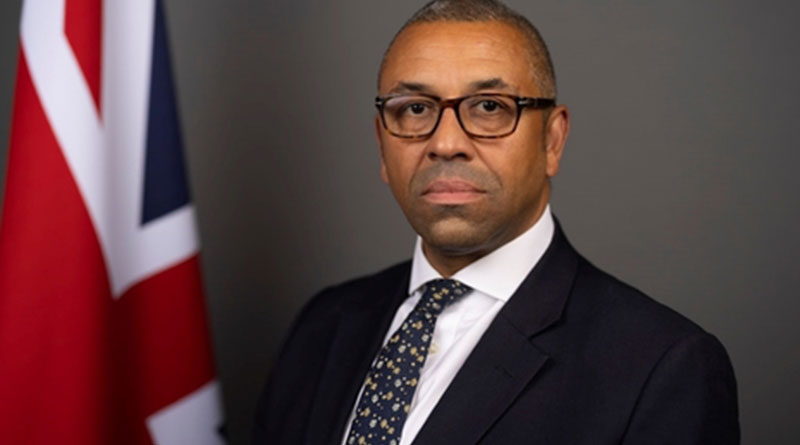Home Secretary Underlines Commitment To Cut Net Migration
Measures to transform the UK’s legal migration system, bolster border security and drive down unsustainable and unfair levels of migration will come into force within weeks, the Home Secretary has announced.
It comes after the Prime Minister and Home Secretary set out a major new package of reforms in December, delivering the biggest ever reduction in net migration and tackling exploitation across the immigration system.
The robust changes, which will curb abuse of the migration system, and ensure those choosing to make the UK their home can afford to do so, will begin to come into effect as early as March and will mean 300,000 people who came to the UK last year would now not be able to come.
They include:
- reforms that will restrict care workers from bringing dependants and require care providers to register with the Care Quality Commission if they are sponsoring migrants, which will come into force on 11 March
- the laying of Immigration Rules, which will include the removal of the 20% going rate discount for occupations on the Shortage Occupation List on 14 March
- a new increase to the minimum salary required for those arriving on the Skilled Worker visa, from £26,200 to £38,700, on 4 April
- increasing the minimum income requirement threshold in stages for family visas, starting at £29,000 from 11 April
The measures will crack down on rising migration, help curb the abuse of the Health and Care visa route, where we have seen people come to the UK for care worker jobs that do not exist or are paid significantly less than the required salary for a migrant worker on this route, and ensure British labour is not undercut by overseas workers.
Home Secretary James Cleverly said: “I’ve been clear that migration is too high and we must get back to sustainable levels. Last year I set out robust measures to reduce the numbers coming into our country – tightening the rules on care workers, skilled workers, and making sure that people can support their family members that they bring over.”
“It is a firm approach, but a fair one, and gives those affected time to prepare whilst ensuring that migration comes down. The British people want to see action, not words. We are delivering the change we promised and which they expect, lifting pressure on public services and protecting British workers with the utmost urgency.”
Helen Whately, Minister of State for Social Care said: “We’re grateful to overseas care workers but I’m clear that immigration is not the long-term answer to our social care needs. That’s why alongside tightening visa rules we’re reforming social care careers to boost our homegrown care workforce.”
“We have launched the first ever national career path for care workers and a new care qualification is on the way. These reforms, together with international recruitment under the new rules, will build on the progress made over the last year – of lower staff turnover, fewer vacancies and more people working in social care.”
From 4 April, the increase to the minimum salary required for those arriving on the Skilled Worker visa, from £26,200 to £38,700, will come into force. This 48% rise will drive down numbers, reduce pressure on public services and prevent the undercutting of British workers by employers who look to recruit cheap labour from overseas. Workers on a Health and Care visa and on health and education national pay scales will be exempt from this specific threshold.
Meanwhile, the laying of the new Immigration Rules on 14 March will include the removal of the 20% going rate discount for occupations on the Shortage Occupation List, which will be abolished in favour of a new Immigration Salary List from early April. This follows a recommendation from the Migration Advisory Committee (MAC), which will now advise government on which occupations should be temporarily added to the new list initially, in time for March.
The minimum income requirement for family visas will rise in stages to give predictability to families, starting at £29,000 from 11 April. By early 2025 this will have increased to £38,700, ensuring only dependants that can be supported financially are brought to the UK.
From 6 February, the Immigration Health Surcharge will be raised by 66% to £1,035. The new rate reflects increases in healthcare expenditure and better reflects the NHS use by migrants, who are provided with near comprehensive access to health services in return.
Sam Monaghan, Chief Executive, MHA: “The Government’s intention, to prevent migrant care staff from coming to the UK from bringing their dependants from mid-March 2024, will place significant and lasting pressure on social care as it loses another avenue of recruitment.”
“There is wide consensus across the sector that more reassurance is needed from the Government on its long-term strategy to tackle staffing issues. With 150,000 vacancies to fill, we desperately need to see evidence of this before policy changes are introduced.”
“The Government must demonstrate that it values social care as a profession. This is why we’re continuing to advocate for the creation of a Social Care Council, which would act as an independent body examining issues such as pay scales, working hours and recruitment on an ongoing basis. This is the level of commitment we need to build a sustainable and futureproof social care workforce.”






